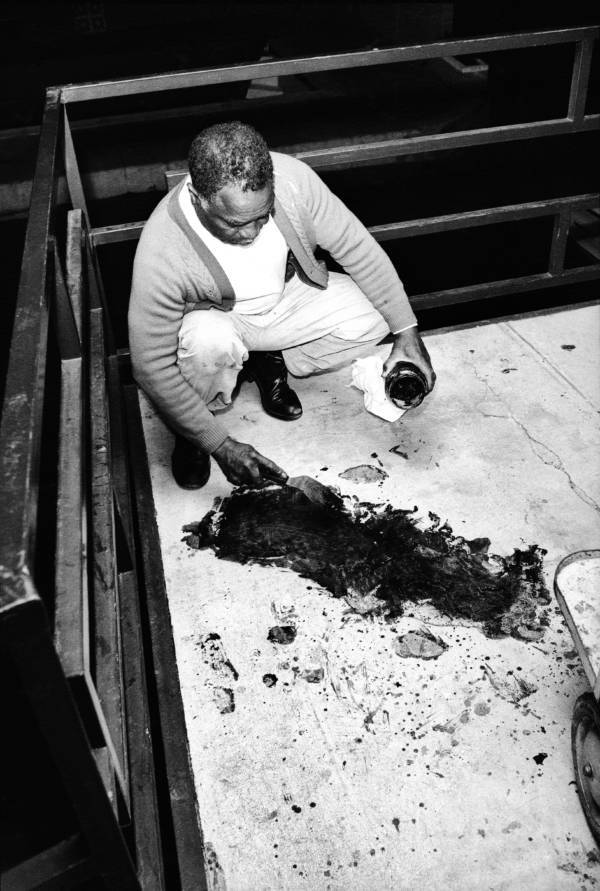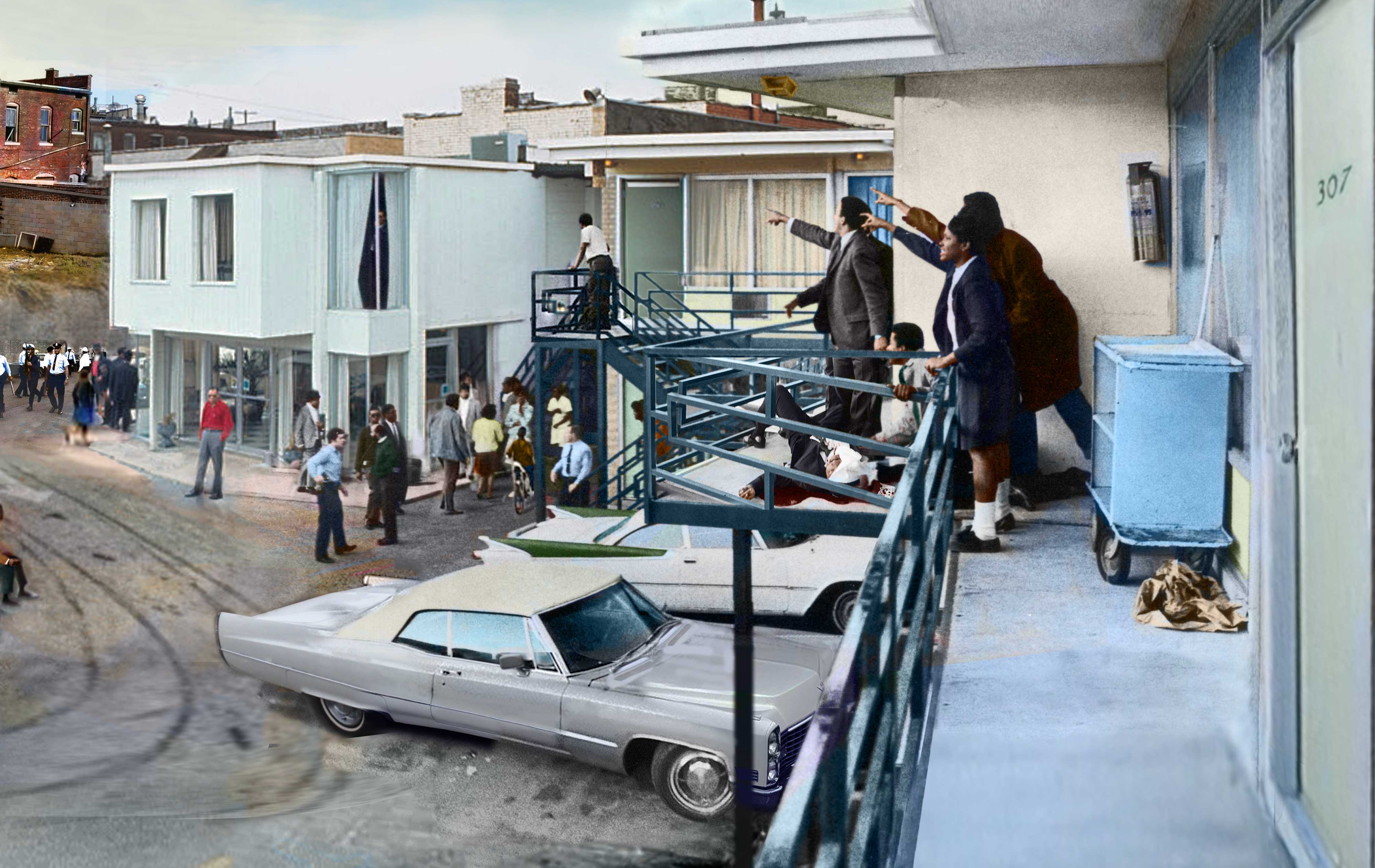When did MLK die? It's a question that lingers in the minds of many, but the story of Martin Luther King Jr. goes far beyond his tragic passing. His life was a testament to courage, resilience, and unwavering dedication to the cause of equality. MLK’s death on April 4, 1968, was a pivotal moment in history, but his legacy continues to inspire generations worldwide. Let's take a closer look at this monumental figure and the impact he left behind.
Imagine living in a world where the color of your skin dictated your opportunities and rights. That was the reality MLK fought against. His journey wasn’t just about changing laws—it was about changing hearts and minds. From leading peaceful protests to delivering iconic speeches, MLK became the face of the civil rights movement. But the road to justice wasn’t easy, and his ultimate sacrifice serves as a reminder of the cost of standing up for what’s right.
So, when did MLK die? We’ll get into the details, but first, let’s explore the man behind the movement. This isn’t just about dates and facts; it’s about understanding the profound impact MLK had on shaping the world we live in today. His legacy isn’t just history—it’s a call to action for everyone who believes in equality and justice.
Read also:Ondemandcontent Revolutionizing The Way We Consume Media Today
Table of Contents
- Biography of Martin Luther King Jr.
- Early Life and Education
- The Civil Rights Movement
- Iconic Speeches and Writings
- When Did MLK Die? The Assassination
- MLK’s Lasting Legacy
- The Impact on Modern Society
- Key Data and Statistics
- Tributes and Memorials
- Conclusion: Remembering MLK
Biography of Martin Luther King Jr.
Who Was Martin Luther King Jr.?
Martin Luther King Jr., often referred to simply as MLK, was an American Baptist minister and activist who became the most visible spokesperson and leader in the civil rights movement from 1954 until his assassination in 1968. Born on January 15, 1929, in Atlanta, Georgia, MLK grew up in a family deeply rooted in the church. His father, Martin Luther King Sr., was a pastor, and his mother, Alberta Williams King, was a schoolteacher.
MLK’s upbringing in the segregated South shaped his worldview and fueled his passion for justice. He witnessed firsthand the injustices faced by African Americans and knew from a young age that he wanted to make a difference. His education and spiritual beliefs would later become the foundation of his nonviolent approach to activism.
Here’s a quick glance at some key details about MLK:
| Full Name | Martin Luther King Jr. |
|---|---|
| Date of Birth | January 15, 1929 |
| Place of Birth | Atlanta, Georgia |
| Occupation | Baptist Minister, Civil Rights Activist |
| Date of Death | April 4, 1968 |
| Cause of Death | Assassination |
Early Life and Education
MLK’s early life set the stage for his future as a civil rights leader. Growing up in Atlanta, he attended segregated schools, which gave him a firsthand experience of racial inequality. Despite these challenges, MLK excelled academically and skipped both the ninth and twelfth grades. He entered Morehouse College at the age of 15, where he studied medicine and law before deciding to follow in his father’s footsteps and become a minister.
After Morehouse, MLK went on to earn a Bachelor of Divinity degree from Crozer Theological Seminary in Pennsylvania. He later pursued a Ph.D. in systematic theology from Boston University, where he wrote his dissertation on "A Comparison of the Conceptions of God in the Thinking of Paul Tillich and Henry Nelson Wieman." This academic background equipped him with the knowledge and skills to articulate his vision for a just society.
The Civil Rights Movement
Leading the Charge
MLK’s involvement in the civil rights movement began in earnest in 1955 when he led the Montgomery Bus Boycott. This 385-day protest, sparked by Rosa Parks’ refusal to give up her seat on a bus, ended with a Supreme Court ruling that declared segregation on public buses unconstitutional. It was a defining moment that thrust MLK into the national spotlight.
Read also:Unveiling The Magic Of Moments Capture Lifes Treasures
Over the years, MLK organized numerous protests, marches, and campaigns aimed at ending racial segregation and discrimination. He was instrumental in the founding of the Southern Christian Leadership Conference (SCLC), which played a crucial role in the movement. His philosophy of nonviolent resistance, inspired by Mahatma Gandhi, became a cornerstone of the struggle for civil rights.
Iconic Speeches and Writings
MLK’s words continue to resonate with people around the world. His speeches and writings were powerful tools in the fight for equality. One of his most famous speeches, "I Have a Dream," delivered during the March on Washington in 1963, remains a symbol of hope and unity. In it, MLK envisioned a future where people of all races could live together in harmony.
Another notable work is his "Letter from Birmingham Jail," written in response to criticism from white clergy who accused him of being too radical. In this letter, MLK eloquently defended the need for nonviolent protest and the urgency of the civil rights struggle.
When Did MLK Die? The Assassination
The question "when did MLK die" is one that evokes deep sorrow and reflection. On April 4, 1968, MLK was assassinated in Memphis, Tennessee. He was standing on the balcony of the Lorraine Motel when he was shot by James Earl Ray, a fugitive who was later convicted of the crime. MLK had traveled to Memphis to support striking sanitation workers, demonstrating his commitment to economic justice as well as racial equality.
The news of his death sent shockwaves through the nation. Cities across the country erupted in riots, and the world mourned the loss of a visionary leader. But even in death, MLK’s message of love and justice endured.
MLK’s Lasting Legacy
MLK’s legacy extends far beyond his lifetime. His efforts contributed significantly to the passage of landmark civil rights legislation, including the Civil Rights Act of 1964 and the Voting Rights Act of 1965. Today, his birthday is celebrated as a national holiday in the United States, honoring his contributions to the fight for equality.
But MLK’s legacy isn’t just about the laws he helped change; it’s about the spirit of hope and resilience he inspired. His vision of a world where people are judged by the content of their character rather than the color of their skin continues to inspire movements for social justice worldwide.
The Impact on Modern Society
MLK’s impact is evident in the progress made toward racial equality, but the struggle is far from over. Issues like systemic racism, police brutality, and economic inequality persist, reminding us of the work that still needs to be done. MLK’s teachings offer a roadmap for addressing these challenges through peaceful protest and dialogue.
Modern activists often draw inspiration from MLK’s example, using his methods of nonviolent resistance to effect change. His influence can be seen in movements like Black Lives Matter, which continue to push for justice and equality.
Key Data and Statistics
Here are some key statistics that highlight the significance of MLK’s work:
- Over 2,000 civil rights demonstrations were held during MLK’s leadership.
- The Civil Rights Act of 1964 ended segregation in public places and banned employment discrimination based on race, color, religion, sex, or national origin.
- In 2020, more than 80% of Americans believed MLK’s dream of racial equality had not been fully realized.
Tributes and Memorials
MLK’s memory is honored through numerous tributes and memorials. The Martin Luther King Jr. Memorial in Washington, D.C., stands as a testament to his legacy. His words are engraved on the stone, reminding visitors of his unwavering commitment to justice.
Schools, streets, and parks around the world bear his name, ensuring that his legacy lives on. Each year, millions participate in MLK Day of Service, volunteering their time to honor his commitment to community and compassion.
Conclusion: Remembering MLK
When did MLK die? April 4, 1968, but his spirit lives on in the hearts of those who continue to fight for justice and equality. His life and work remind us that change is possible when we stand together and speak out against injustice. As we reflect on his legacy, let’s remember the power of love, hope, and nonviolent resistance.
So, what can you do? Take a moment to learn more about MLK’s life and teachings. Share this article with others to spread awareness about his impact. And most importantly, take action in your own life to promote equality and justice. After all, as MLK once said, "Injustice anywhere is a threat to justice everywhere."


